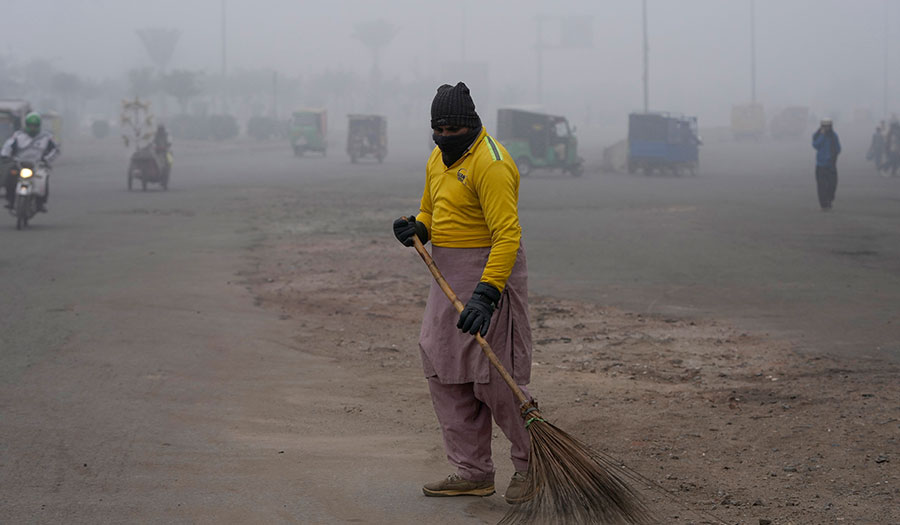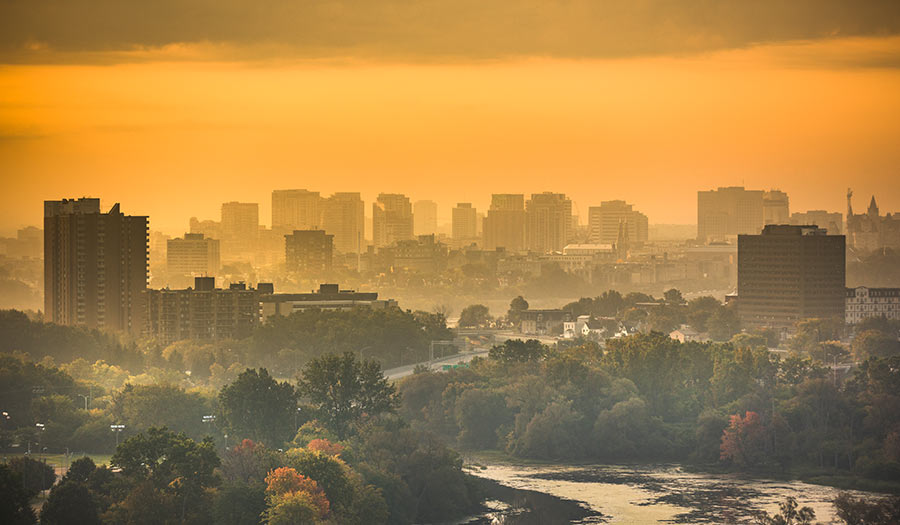 AP/K.M. Chaudary
AP/K.M. Chaudary
World News Desk
Learn the why behind the headlines.
Subscribe to the Real Truth for FREE news and analysis.
Subscribe NowBENGALURU, India (AP) – Most of the world has dirty air, with just 17 percent of cities globally meeting air pollution guidelines, a report released on Tuesday found.
Switzerland-based air quality monitoring database IQAir analyzed data from 40,000 air quality monitoring stations in 138 countries and found that Chad, Congo, Bangladesh, Pakistan and India had the dirtiest air. India had six of the nine most polluted cities with the industrial town of Byrnihat in northeastern India the worst.
Experts said the real amount of air pollution might be far greater as many parts of the world lack the monitoring needed for more accurate data. In Africa, for example, there is only one monitoring station for every 3.7 million people.
More air quality monitors are being set up to counter the issue, the report said. This year, report authors were able to incorporate data from 8,954 new locations and around a thousand new monitors as a result of efforts to better monitor air pollution.
But last week, data monitoring for air pollution was dealt a blow when the U.S. State Department announced it would no longer make public its data from its embassies and consulates around the world.
Breathing in polluted air over a long period of time can cause respiratory illness, Alzheimer’s disease and cancer, said Fatimah Ahamad, chief scientist and air pollution expert at Malaysia-based Sunway Centre for Planetary Health. The World Health Organization estimates that air pollution kills around 7 million people each year.
Dr. Ahamad said much more needs to be done to cut air pollution levels. The WHO had earlier found that 99 percent of the world’s population lives in places that do not meet recommended air quality levels.
“If you have bad water, no water, you can tell people to wait for half an hour a day, the water will come. But if you have bad air, you cannot tell people to pause breathing,” she said.
Several cities like Beijing, Seoul, South Korea, and Rybnik in Poland have successfully improved their air quality through stricter regulations on pollution from vehicles, power plants and industry. They have also promoted cleaner energy and invested in public transportation.
Another notable effort to curb severe air pollution was the Association of Southeast Asian Nations agreement on transboundary haze pollution. Even though it has had limited success so far, ten countries in the region pledged to work together to monitor and curb pollution from large forest fires, a common occurrence in the region during dry seasons.
- Real Truth Magazine Articles
- WEATHER & ENVIRONMENT
 Air Pollution: A Global Conundrum
Air Pollution: A Global Conundrum
More on Related Topics:
- ‘It’s Not Safe to Live Here.’ Colombia Is Deadliest Country for Environmental Defenders
- ‘Everything Destroyed’ as Indonesia’s Aceh Grapples with Disease After Floods
- A Drying-Up Rio Grande Basin Threatens Water Security on Both Sides of the Border
- Deep-Sea Mining Risks Disrupting the Marine Food Web, Study Warns
- Piles of Garbage and Seeping Sewage Pollute Devastated Gaza


